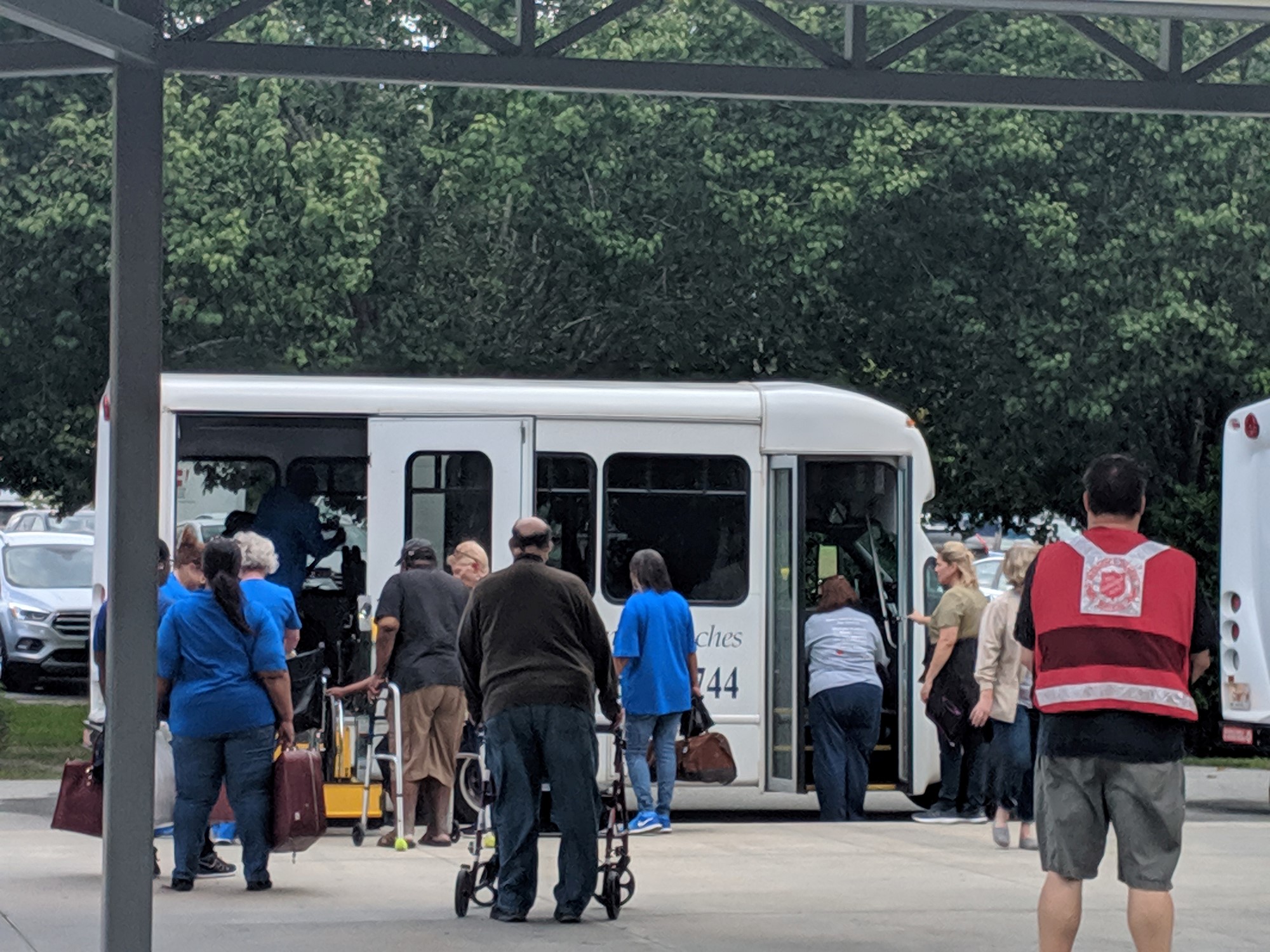The Intersection of Hurricane Season and COVID-19: Implications for Emergency Shelters
- By: Multiple Authors
- Date
How do you plan for hurricane season during a pandemic? According to Betty Dixon, BSN, MHSA, DrPH (Director of Nursing and Clinical Services at the Coastal Health District in Savannah, Georgia), the answer is full of precautions.
Dr. Dixon explains, “We are very concerned about COVID-19 and the potential for its spread within emergency shelters, so spacing and social distancing will be a priority. For us, this may involve finding more shelter sites, working with our partners, and seeing what opportunities are available within our communities. We may not be able to host as many people in a shelter as in years past so this includes being creative as we look for other potential space.”
Interim guidance from the CDC on Disaster Shelters During the COVID-19 Pandemic supports this approach. Specifically, this guidance encourages prioritizing small shelters, hotels, and dormitories over large, mass shelters.
“We are also looking at ways to keep the shelters clean. This includes bathrooms, floors, and surfaces that people come in contact with frequently,” adds Dr. Dixon. She suggests evacuees “take cleaning items with you to the shelter—soap, hand sanitizer, disinfecting wipes, toilet paper, and general household cleaning supplies to disinfect surfaces you touch regularly.” The CDC recommends that shelter staff thoroughly clean and disinfect shelter intake areas and frequently touched surfaces like tables, doorknobs, light switches, and faucets every four hours.
Because infectious disease outbreaks like influenza have been a threat to hurricane shelters in the past, intake processes are already designed to isolate ill evacuees from others. Dr. Dixon explains, “Shelters that we are involved with have always had a triage prior to the person going in. That triage will now include taking a person’s temperature before entering a shelter. We are accustomed to separating people (and even sending them to a hospital) at a shelter due to illness, so this is not that much different.”
The CDC also urges daily monitoring of shelter residents for COVID-19 symptoms, as well as for parallelism: using cloth face coverings and continued social distancing. “Anyone over two years old should use a cloth face covering while at a shelter,” according to Dr. Dixon. “It does not need to be an N-95 mask. If possible, have at least two per person, that way you can change it out daily and the one you are not wearing can be disinfected and dried out before the next wearing.” Furthermore, shelter facilities should be arranged to support social distancing. Dr. Dixon advises residents to “maintain at least 6 feet between you and persons not part of your immediate family while at the shelter as much as possible.”
Dr. Dixon advises the public to be practical, yet optimistic: “I recommend everyone have a plan. Hurricanes happen every year, so we should all stay in a state of readiness. There are several ways to stay prepared. One of the newest ways is to download the FEMA app. With this app, anyone can receive real-time alerts from the National Weather Service. This platform helps you know when and where hurricanes are occurring and provides excellent tips for staying safe. This year, consider packing your own cleaning supplies, plastic bags, and masks. Be prepared to clean the area where you shelter, even if it is a hotel room. We’ve all done so well in flattening the curve. If we all take responsibility for keeping our distance and being protected, we will get through this.”
The Georgia Hurricane Response Hub is co-hosting a webinar with CDC’s National Center for Environmental Health on shelter guidance on July 2, 2020 from 12-1:30pm ET. To learn more and register click here.
Additional Resources on the Intersection of Hurricane Season and COVID-19
- COVID-19 Pandemic Operational Guidance for the 2020 Hurricane Season
- A Dual Disaster Handbook: 6 Recommendations for Local Leaders Responding to Floods During COVID-19
- Going to a Public Disaster Shelter During the COVID-19 Pandemic
- Planning for the Upcoming Hurricane Season in Light of COVID-19
- Preparing for Hurricane Season During the COVID-19 Pandemic
- Preparing for Hurricanes During the COVID-19 Pandemic
Related Training from the Georgia Hurricane Response Hub
This blog was submitted by the Georgia Hurricane Response Hub.
How You Can Get Involved
To request training or to get more information about how the Hurricane Response Hub can help your organization improve its hurricane-related disaster-related health recovery efforts, visit https://nnphi.org/focus-areas-service/hurricane-response-hub/.
For more information on what NNPHI is doing to respond to COVID-19, visit here.
More Articles Related to The Hub Speaks
Learning Opportunities: Resources for Hurricane Readiness & Recovery (The Hub Speaks, June 2020)
CDC Guidelines for General Population Disaster Shelters During the COVID-19 Pandemic

 Subscribe To Our Communications
Subscribe To Our Communications